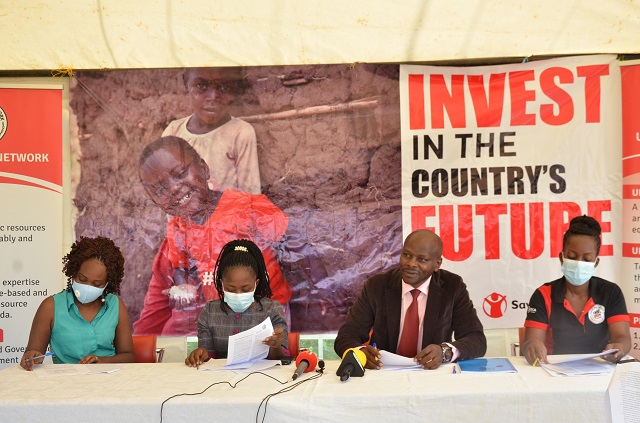
Kampala, Uganda | Isaac Khisa | Uganda government has registered some progress in the implementation of Universal Primary Education (UPE) but the high school dropout rate especially in the northern region due to lack of meals for learners is of concern.
As such, the executives at Uganda Debt Network, a civil society organisation, are of the opinion that the government incorporates the National School Feeding and Nutrition Programme into the planned rollout of Parish Development Model as contribution to improved school retention and gender parity and so is the country’s equal development.
The Cabinet in March this year directed the implementation of the Parish Development Model effective FY 2021/22 as a major pathway to meet the national objectives in relation to job creation, wealth creation and inclusive socio-economic transformation.
However, it did not address issues relating to meals for learners, an item that has been on the table for some time now.
Christine Byiringiro, Program Manager at UDN said on Sunday that the government need to ride on the new model – which has seven pillars including; production, processing, and marketing; infrastructure and economic services; financial inclusion; social services; mindset change; community information systems; and governance and administration – to enable learners access meals at school for improved outputs and outcomes of UPE.
“The PDM can ably support the suggested National School Feeding and Nutritional Programme,” she said.
“For instance, PDM pillar 1 on Production, Processing and Marketing can promote comprehensive Sustainable School Gardening under UPE in schools; and or also ensure that the Community Commercial Producer Groups supplies to adjacent UPE schools where the government purchases and directly pays off the Community Commercial Producer Groups.”
She said the government’s purchase of food from Community Commercial Producer Groups directly injects money into the groups for job and wealth creation, while utilizing digital platforms under pillar 2 on infrastructure and economic services and pillar 3 on financial inclusion.
This, she said, will contribute to advancing PDM’s pillar 4 in social services provision where education improvement is covered.
Byiringiro said schools can be treated like individual households to access necessary support such as seeds from the Operation Wealth Creation (OWC) towards food production for learners, with parents and learners providing some labour.
“While UDN and partners will continue to engage, we call upon the government to study further how best we can as a country utilize the current or prospecting programs towards comprehensive school feeding for better quantity and quality of educational services; improved UPE output and outcomes as an entry point, towards implementation of National Development Plan, Sustainable Development Goals and overall national development,” She said.
Gilbert Musinguzi, the quality assurance manager at UDN said UPE has registered some progress, but could do better through utilizing some of the current and prospecting programmes, broadly without resource for additional resources but rather reshuffling available budget resources and enriching programs.
This development comes even as schools remain closed for now 18 straight months, save for a few high end private and public schools with online infrastructure facilities, since the confirmation of the first COVID-19 case in the country in 2020.
The government unveiled UPE in 1997, leading to increased children’s access to education and so is their contribution to the social wellbeing of the general population.
Latest statistics from the Uganda Bureau of Statistics show that pupil’s school enrolment more than doubled from merely 3.1 million pupils in 1996 to 8.84 pupils in 2017 and 10.7million in 2020. The number of girls attending and completing school has also risen to an all-time high.
However, the absence of meals in schools has also contributed to a huge school dropout in equal measure, especially in the Acholi and the Karamoja sub- regions, threatening the government’s effort to achieve equitable access to education and economic development.
Musinguzi said the feeding initiative for the learners need to be tailored based on the schools location and available resources.
However, the government has over the years insisted that parents take the responsibility of providing meals for their children.
 The Independent Uganda: You get the Truth we Pay the Price
The Independent Uganda: You get the Truth we Pay the Price



